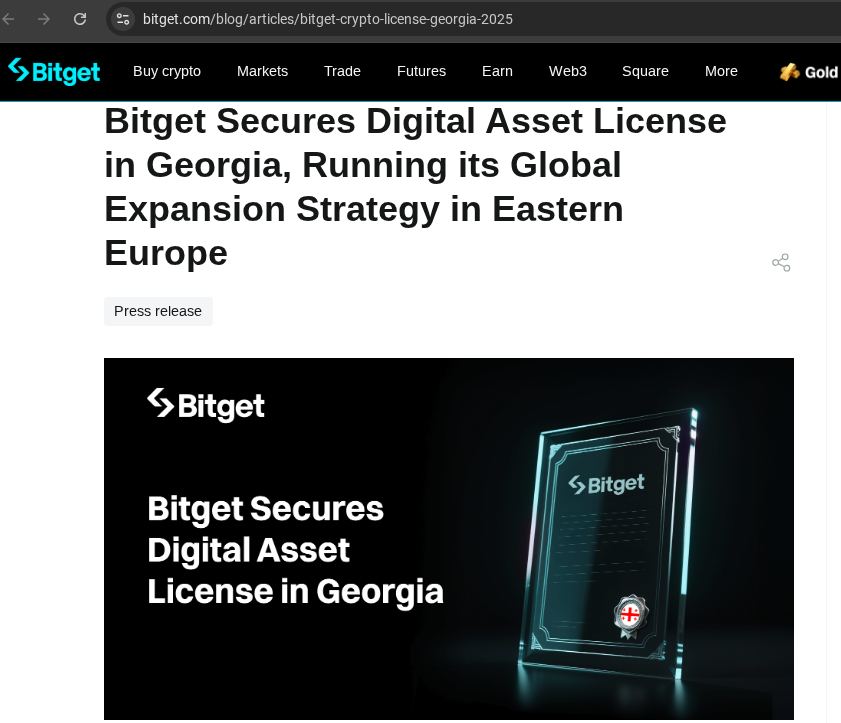
Bitget Claims It Has a Crypto License in Georgia
Today, Bitget announced on its blog that it has obtained a crypto license in Georgia.
It’s not the first exchange to make this kind of claim. Several others have mentioned Georgian licenses before – the most well-known being Bybit.
But every time I read such announcements, I can’t help but ask:
- Which authority issued the license?
- And what exactly is the license for?
The second question is key. Georgia has a Law on Licenses and Permits that outlines exactly which types of activities require licensing. It covers everything from baby food production to arms trading. And guess what? Operating a cryptocurrency exchange isn’t one of them.
So here’s the catch: there is no such thing as a Georgian license to run a crypto exchange.
So what did Bitget actually receive? One might assume it was a simple VASP (Virtual Asset Service Provider) registration – something Bybit has also referred to as a "license" in the past. But this time it’s trickier. According to Bitget’s own press release, they seem to understand the difference between registration and licensing. Here’s what they wrote:
"In addition, Bitget's recent licenses in El Salvador and registration in Argentina adds depth to its reach... The newly acquired license in Georgia builds on this momentum."
Which begs the question: what is this “license in Georgia” actually for?
Until Bitget provides a clear answer, this just feels like smoke and mirrors.
My advice? Stick with platforms that are transparent. If a license isn’t required, they’re honest about it - no smoke, no mirrors.
That’s exactly how things work at rabbit.io.













